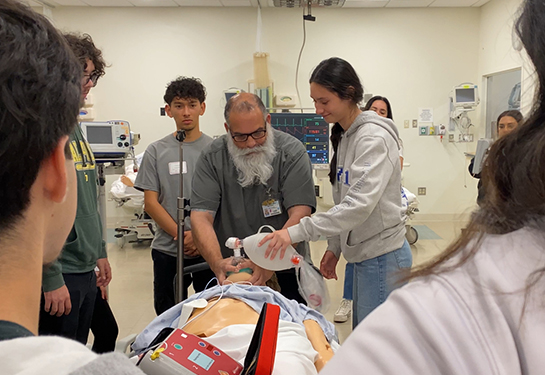Immigration symposium produces comprehensive report on trauma-informed care
UC Davis Center for Reducing Health Disparities brings together state and national immigration experts
The unprecedented trauma endured by immigrants and their families after years of harmful policies at the federal, state and local levels will not quickly disappear. The impact of the traumatic experiences will linger for many years to come and its negative effects will be manifested particularly by the children who have been separated from their parents.

That’s one of the underlying themes of a recent report by the UC Davis Center for Reducing Health Disparities, based on a popular symposium it organized and co-hosted last summer.
The report – Trauma-Informed Care and Services for Immigrant Families -- is the result of a three-part virtual symposium where leading experts described what they deemed were chilling effects of anti-immigrant policies. The nationally known experts also shared ideas about trauma-informed approaches by health care, mental health and social service providers, and identified the financial impact of trauma on immigrant families, among other topics.
The report is a comprehensive compilation of the proceedings, which includes the presentations and discussions among the speakers and panelists.
“This symposium brought more attention and awareness to the importance of traumatic experiences in families and the children who were separated from immigrant families and the long-term impact on their physical and mental health,” said Sergio Aguilar-Gaxiola, the center’s director.
“Participants also proposed solutions, such as providing clinical services that are necessary to deal with the negative impact of immigration policies on the experiences suffered by children and their parents,” Aguilar-Gaxiola added.
Symposium leaders encouraged health care providers, policy makers and advocates to access the report to learn how they can provide better services to families who have been harmed by immigration policies.
“Trauma and adverse childhood experiences help us understand how immigrants and immigrant families living with fear and toxic stress and feeling constantly threatened by potential immigration enforcement and deportation are affected,” said Ignatius Bau, the center’s consultant for the symposium.
The Symposium was sponsored and funded by the California Health Care Foundation.



